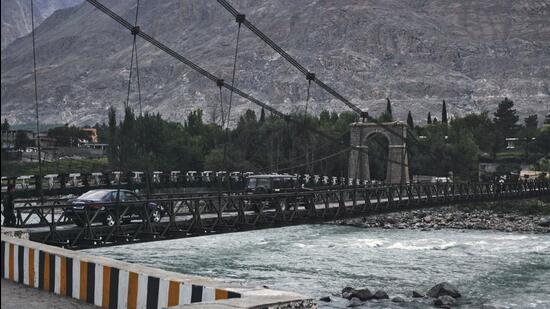Closing the terror tap after Pahalgam
New Delhi’s moves suggest it intends to move incrementally up the escalatory ladder
If New Delhi’s initial response on Wednesday to the terror attack on tourists in Pahalgam — the suspension of the six-decade-old Indus Waters Treaty (IWT), closing of the only operational land border crossing and downgrading of diplomatic relations — indicated that India was clear about Pakistan’s involvement, and wanted to exert pressure on it across fronts, then Prime Minister Narendra Modi’s comments at a public meeting in Bihar on Thursday — “India will identify, track and punish every terrorist and their backers; we will pursue them to the ends of the Earth” — delivered in English to ensure it was heard across the world, suggest that there will be more to the response. As there should be — the targeted killing of Hindu tourists needs a befitting retort.

India has said IWT will remain in abeyance till Pakistan “credibly and irrevocably” ends its support for cross-border terrorism, and while the country may not immediately be able to store the water from the Indus and its tributaries, given the absence of any large dams upstream, experts believe it will still be able to divert the water, wreaking havoc downstream in Pakistan. New Delhi has never reneged on the treaty, and the fact that it has now threatened to, only shows its resolve to get Islamabad and Rawalpindi — Pakistan has two asymmetric power centres — to listen. The suspension of IWT— brokered by the World Bank to divide the six rivers of the Indus Basin between the two countries — may not have the spectacular element of a surgical strike across the Line of Control or International Border but its long-term implications for Pakistan could be far more serious. Almost 80% of the water in the Indus Basin originates from the three western rivers — Indus, Jhelum and Chenab — which were allocated to Pakistan under the treaty, and the country’s agricultural heartland is dependent on the predictable supply of water from these rivers. If their flow falls, Pakistan’s agricultural and hydropower sectors could face immense problems.
While commenting on India’s punitive measures, Pakistan’s defence minister Khawaja Asif condemned terrorism occurring in India and elsewhere — absent in the initial response from Islamabad. For far too long, Pakistan’s politicians and sections of the public have turned a blind eye to their military’s close links with a wide range of terrorist groups, including Lashkar-e-Taiba (LeT), one of whose proxies has claimed the attack in Pahalgam.
India must now follow up its threats with action, not just by targeting terrorist hubs in Pakistan, but also coming up with a plan quickly to divert waters of the three western rivers. Pakistan has never been a good listener, but there’s no doubting that it will feel the pain.
All Access.
One Subscription.
Get 360° coverage—from daily headlines
to 100 year archives.



HT App & Website







